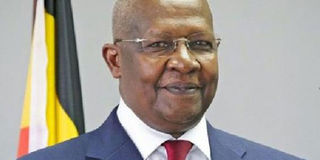Don’t block but help out citizens stranded abroad

Foreign Affairs Minister Sam Kutesa. File photo
What you need to know:
- The issue: Stranded Ugandans.
- Our view: Current conditions, months after abruptly closing all borders, is insensitive as the government is pretty much telling Ugandans stranded abroad that if you are broke, we would like you to stay wherever you are.
Ninety one days after Uganda closed its borders to all incoming passengers, the government finally appears ready to start letting in citizens stranded abroad.
But the government is going about this process in a disappointing manner, as one would be forgiven for thinking that Uganda is more interested in keeping her citizens out of the country.
This attitude can be discerned from the preconditions form released by government that is to be signed by those interested in returning to Uganda during this Covid-19 period. Among the conditions given is that all returnees will be responsible for booking and buying their own tickets.
Such a condition, months after abruptly closing all borders, is insensitive as the government is pretty much telling Ugandans stranded abroad that if you are broke, we would like you to stay wherever you are. This is unfair to low budget travellers, especially those who had gone for short visits but were forced to stay abroad because of the border closure.
There are also preconditions requiring returnees to stay in quarantine for a minimum of 14 days. That the government needed to include a clause ensuring that the Ministry of Health can hold returning citizens for more than 14 days is disappointing.
It is disappointing that the lesson learnt by the Ministry of Health from mismanaging the process of quarantining people who returned from Europe, the United States, China and South Korea just before Uganda closed the airport, is to hide behind legalese so as to hold onto people for longer than the days recommended by the World Health Organisation.
To make sure that this latest group does not create trouble, the government is confiscating their passports.
Before these returnees can be given permission to return home, they have been asked to agree to deposit their passports with immigration officers at the point of entry.
The passports will only be given back to the returnees after the end of the mandatory quarantine period and upon presentation to the immigration office, a certificate of release from quarantine.
Now the confiscation of passports from their owners by anyone other than a court of law is something that we have previously associated with human traffickers.
All the horror stories we have had about Ugandan girls being held in slavery, especially in the Middle East, involve the confiscation of passports, a practice from human traffickers from whom we cannot expect reasonable behaviour.
And now the government is making official the extra judicial tactics of human traffickers.
Our commitment to you
We pledge:
- To be accurate and fair in all we do.
- To be respectful to all in our pursuit of the truth.
- To refuse to accept any compensation beyond that provided by Monitor Publications Ltd for what we do in our news gathering and decision-making.
Further, we ask that we be informed whenever you feel that we have fallen short in our attempt to keep these commitments.




